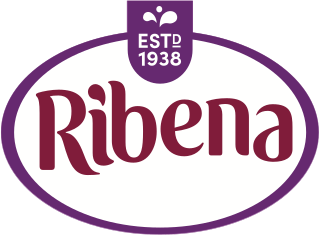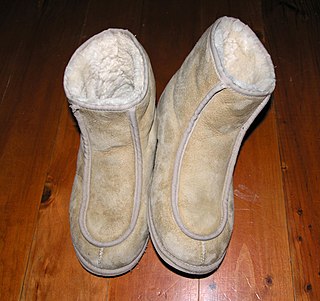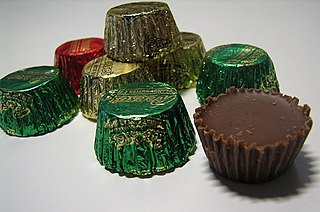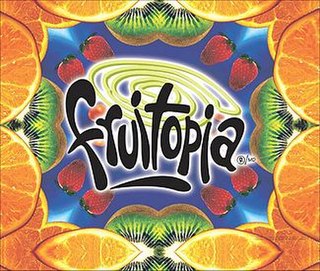Related Research Articles

Coca-Cola, or Coke, is a cola soft drink manufactured by the Coca-Cola Company. In 2013, Coke products were sold in over 200 countries and territories worldwide, with consumers drinking more than 1.8 billion company beverage servings each day. Coca-Cola ranked No. 94 in the 2024 Fortune 500 list of the largest United States corporations by revenue. Based on Interbrand's "best global brand" study of 2023, Coca-Cola was the world's sixth most valuable brand.

Irn-Bru is a Scottish carbonated soft drink, often described as "Scotland's other national drink". Introduced in 1901, the drink is produced in Westfield, Cumbernauld, North Lanarkshire, by A.G. Barr of Glasgow. As well as being sold throughout the United Kingdom, Irn-Bru is available throughout the world and can usually be bought where there is a significant community of people from Scotland. The brand also has its own tartan. It has been the top-selling soft drink in Scotland for over a century, competing directly with global brands such as Coca-Cola.

A smiley, sometimes called a smiley face, is a basic ideogram representing a smiling face. Since the 1950s, it has become part of popular culture worldwide, used either as a standalone ideogram or as a form of communication, such as emoticons. The smiley began as two dots and a line representing eyes and a mouth. More elaborate designs in the 1950s emerged, with noses, eyebrows, and outlines. New York radio station WMCA used a yellow and black design for its "Good Guys" campaign in the early 1960s. More yellow-and-black designs appeared in the 1960s and 1970s, including works by Harvey Ross Ball in 1963, and Franklin Loufrani in 1971. Today, The Smiley Company founded by Franklin Loufrani claims to hold the rights to the smiley face in over 100 countries. It has become one of the top 100 licensing companies globally.

A logo is a graphic mark, emblem, or symbol used to aid and promote public identification and recognition. It may be of an abstract or figurative design or to include the text of the name that it represents as in a wordmark.

Ribena is a brand of blackcurrant-based soft drink, and fruit drink concentrate designed to be mixed with water. It is available in bottles, cans and multi-packs. Originally of English origin, it was produced by the pharmaceutical company GlaxoSmithKline (GSK) until 2013, when the brand was sold to Japanese beverage conglomerate Suntory.

Dairy Queen (DQ) is an American multinational fast food chain founded in 1940 and currently headquartered in Bloomington, Minnesota. The first Dairy Queen was owned and operated by Sherb Noble and first opened on June 22, 1940, in Joliet, Illinois. It serves a variety of hot and fried food, as well as original frozen dairy products that vary from location to location.

Kiwiana are certain items and icons from New Zealand's heritage, especially from around the middle of the 20th century, that are seen as representing iconic New Zealand elements. These "quirky things that contribute to a sense of nationhood" include both genuine cultural icons and kitsch.

Lemon & Paeroa, often shortened to L&P, is a sweet, lemon-flavoured soft drink manufactured in New Zealand. It is considered Kiwiana, and was traditionally made by combining lemon juice with naturally carbonated mineral water from the town of Paeroa. Today, it is manufactured by multi-national Coca-Cola. The origin date of the drink is uncertain, but the brand estimates 1908.

Vernors is an American brand of ginger ale owned by Keurig Dr Pepper that was first served in 1866 by James Vernor, a pharmacist from Detroit.

Ugg boots are a unisex style of sheepskin boot originating in Australia. The boots are typically made of twin-faced sheepskin with fleece on the inside, a tanned outer surface and a synthetic sole. The term "ugg boots" originated in Australia, initially for utilitarian footwear worn for warmth, and which were often worn by surfers during the 1960s. In the 1970s, the boots were introduced to the surf culture of the United Kingdom and the United States. Sheepskin boots became a fashion trend in the U.S. in the late 1990s and a worldwide trend in the mid-2000s. In Australia, they are worn predominantly as slippers and often associated with daggy fashion sense and bogan culture.

Fresca is a grapefruit-flavored citrus soft drink created by The Coca-Cola Company. Borrowing the word Fresca from Italian, Spanish, and Portuguese, it was introduced in the United States in 1966. Originally a bottled sugar-free diet soda, sugar sweetened versions were introduced in some markets.

Carling Black Label is a lager distributed by Carling Brewing Company.

Mello Yello is a highly caffeinated, citrus-flavored soft drink produced, distributed and created by the Coca-Cola Company that was introduced on March 12, 1979, to compete with PepsiCo's Mountain Dew.

A peanut butter cup is a molded chocolate with a peanut butter filling. Peanut butter cups are one of the most popular kinds of candy in America. They can be made at home, but like most candies, they are commonly mass-produced. They may also be available in candy shops, produced by local or regional candymakers.

Milky Way is a brand of chocolate-covered confectionery bar manufactured and marketed by Mars, Incorporated. There are two varieties: the U.S. Milky Way bar, which is sold as the Mars bar worldwide, including Canada; and the global Milky Way bar, which is sold as the 3 Musketeers in the U.S. and Canada.

Fruitopia is a fruit-flavored drink introduced by the Coca-Cola Company's successful Minute Maid brand in 1994 and targeted at teens and young adults. According to New York Times business reports, it was invented as part of a push by Minute Maid to capitalize on the success of Snapple and other flavored tea drinks. The brand gained substantial hype in the mid-1990s before enduring lagging sales by the decade's end. While still available in Canada and Australia as a juice brand, in 2003, Fruitopia was phased out in most of the United States where it had struggled for several years. However, select flavors have since been revamped under Minute Maid. Use of the Fruitopia brand name continues through various beverages in numerous countries, including some McDonald's restaurant locations in the United States, which carry the drink to this day.
Rolls-Royce Motor Cars Limited is a British luxury automobile maker that has operated as a wholly owned subsidiary of BMW AG since 2003 – as the exclusive manufacturer of Rolls-Royce-branded motor cars. The company's administrative and production headquarters are located on the 42-acre (17 ha) Goodwood Estate in Goodwood, West Sussex, England, United Kingdom.
Duff Beer is a brand of beer that originated as a fictional beverage on the American animated series The Simpsons. Beers using the Duff branding have been brewed in a number of countries, resulting in legal battles with varying results. An official version is sold in three variations near the Simpsons Ride at Universal Studios. In 2015, 20th Century Fox, the producer of The Simpsons, began selling licensed Duff beer in Chile, with a view to driving out brandjacking.

Fireball Cinnamon Whisky is a mixture of Canadian whisky, cinnamon flavoring and sweeteners that is produced by the Sazerac Company. Its foundation is Canadian whisky, and the taste otherwise resembles the candy with a similar name, Ferrara Candy Company's "Atomic Fireball" candy. It is bottled at 33% alcohol by volume.
Live+ is an energy drink marketed to New Zealanders by Monster Beverage Corporation. It was originally known as Lift+ or Lift Plus and created and produced by Coca-Cola Amatil based on the soft drink Lift.
References
- 1 2 3 Smith, Jeremy (21 May 2020). "The tallest tale in Waipā". Cambridge News. Retrieved 26 September 2023.
- 1 2 3 4 "The longest summer drink". FMCG. Vol. 18, no. 10. November 2012. pp. 50–51. Retrieved 26 September 2023.
- ↑ Beverland, Michael (December 2020). "How Brands Craft National Identity". Journal of Consumer Research . 48 (4): 586–609. doi:10.1093/jcr/ucaa062 . Retrieved 26 September 2023.
- ↑ McCall, Claire (28 June 2012). "Crafty people who are hard to ignore". The New Zealand Herald . Retrieved 26 September 2023.